Understanding what could cause stomach pain
Learn about what could cause stomach pain and when to see a doctor.
Understanding what could cause stomach pain
Learn about what could cause stomach pain and when to see a doctor.

Stomach pain is a common issue that affects many people at some point in their lives. It can vary from mild discomfort to severe pain and may be caused by various factors, ranging from temporary digestive disturbances to more serious medical conditions. Identifying the location and nature of the pain can provide important clues about the underlying cause.
While occasional stomach pain is often harmless, persistent or severe discomfort may indicate a more significant health concern. Recognising when to seek medical attention can help prevent complications and ensure appropriate treatment.
So what could cause stomach pain?
Stomach pain is a common issue that affects many people at some point in their lives. It can vary from mild discomfort to severe pain and may be caused by various factors, ranging from temporary digestive disturbances to more serious medical conditions. Identifying the location and nature of the pain can provide important clues about the underlying cause.
While occasional stomach pain is often harmless, persistent or severe discomfort may indicate a more significant health concern. Recognising when to seek medical attention can help prevent complications and ensure appropriate treatment.
So what could cause stomach pain?

Common digestive causes of stomach pain
Indigestion (Dyspepsia)
Overeating, eating spicy foods, or drinking too much caffeine or alcohol can trigger indigestion, leading to bloating, discomfort, and a burning sensation in the stomach.
Gastroesophageal Reflux Disease (GORD)
GORD occurs when stomach acid flows back into the oesophagus, irritating. It often results in a burning pain in the upper stomach and chest, commonly known as heartburn.
Gas and Bloating
Trapped gas in the intestines can lead to cramping and pressure-related discomfort. It may be caused by swallowing air, eating certain foods, or an imbalance in gut bacteria.
Constipation
Infrequent bowel movements and hard stools can cause bloating and pain in the abdomen. This may result from dietary choices, dehydration, or living a sedentary lifestyle.

Common digestive causes of stomach pain
Indigestion (Dyspepsia)
Overeating, eating spicy foods, or drinking too much caffeine or alcohol can trigger indigestion, leading to bloating, discomfort, and a burning sensation in the stomach.
Gastroesophageal Reflux Disease (GORD)
GORD occurs when stomach acid flows back into the oesophagus, irritating. It often results in a burning pain in the upper stomach and chest, commonly known as heartburn.
Gas and Bloating
Trapped gas in the intestines can lead to cramping and pressure-related discomfort. It may be caused by swallowing air, eating certain foods, or an imbalance in gut bacteria.
Constipation
Infrequent bowel movements and hard stools can cause bloating and pain in the abdomen. This may result from dietary choices, dehydration, or living a sedentary lifestyle.

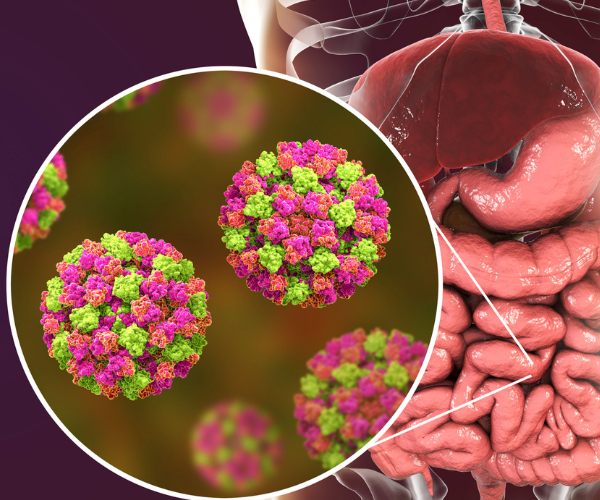
Stomach infections and inflammation
Gastroenteritis (stomach flu)
Viral or bacterial infections can inflame the stomach lining, leading to nausea, vomiting, diarrhoea, and cramping. These symptoms often resolve on their own but can sometimes require medical attention.
Helicobacter pylori (H. pylori) Infection
H.pylori is a bacterial infection that can cause chronic stomach pain and is linked to stomach ulcers. Many individuals do not experience symptoms, but in some cases, it leads to ongoing digestive discomfort.
Food poisoning
Consuming contaminated food can potentially result in severe stomach pain, nausea, vomiting, and diarrhoea. In most cases, symptoms typically develop within hours of ingestion and can last for several days.
Gastritis
Inflammation of the stomach lining may be caused by infections, prolonged stress, or certain medications. Gastritis can result in persistent pain, nausea, dizziness, and a burning sensation in the stomach.
Stomach infections and inflammation
Gastroenteritis (stomach flu)
Viral or bacterial infections can inflame the stomach lining, leading to nausea, vomiting, diarrhoea, and cramping. These symptoms often resolve on their own but can sometimes require medical attention.
Helicobacter pylori (H. pylori) Infection
H.pylori is a bacterial infection that can cause chronic stomach pain and is linked to stomach ulcers. Many individuals do not experience symptoms, but in some cases, it leads to ongoing digestive discomfort.
Food poisoning
Consuming contaminated food can potentially result in severe stomach pain, nausea, vomiting, and diarrhoea. In most cases, symptoms typically develop within hours of ingestion and can last for several days.
Gastritis
Inflammation of the stomach lining may be caused by infections, prolonged stress, or certain medications. Gastritis can result in persistent pain, nausea, dizziness, and a burning sensation in the stomach.
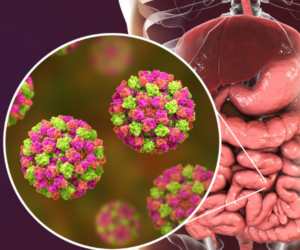
More serious medical conditions
Stomach Ulcers
These open sores in the stomach lining often cause burning pain. They may develop due to H. pylori infection or prolonged use of certain medications.
Gallstones
These hardened deposits in the gallbladder can block bile flow, leading to sharp pain in the upper abdomen, particularly after eating fatty foods.
Appendicitis
This condition begins with dull pain around the belly button, which gradually shifts to the lower right abdomen. It requires urgent medical attention.
Hernias
A hernia occurs when an organ pushes through the abdominal wall, leading to discomfort, particularly when lifting heavy objects or straining too much.
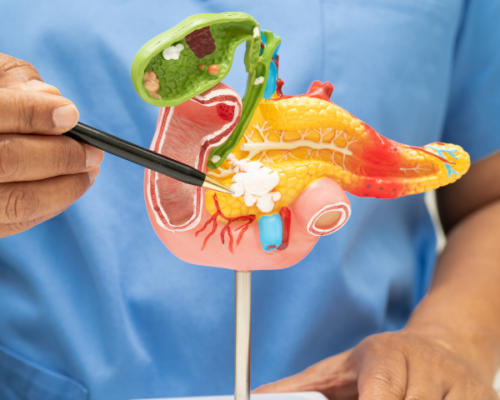
More serious medical conditions
Stomach Ulcers
These open sores in the stomach lining often cause burning pain. They may develop due to H. pylori infection or prolonged use of certain medications.
Gallstones
These hardened deposits in the gallbladder can block bile flow, leading to sharp pain in the upper abdomen, particularly after eating fatty foods.
Appendicitis
This condition begins with dull pain around the belly button, which gradually shifts to the lower right abdomen. It requires urgent medical attention.
Hernias
A hernia occurs when an organ pushes through the abdominal wall, leading to discomfort, particularly when lifting heavy objects or straining too much.
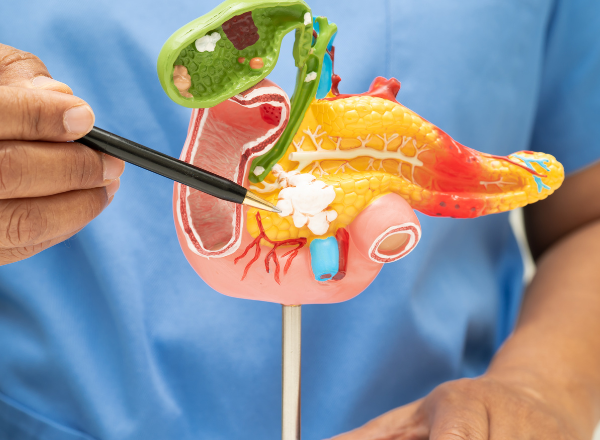
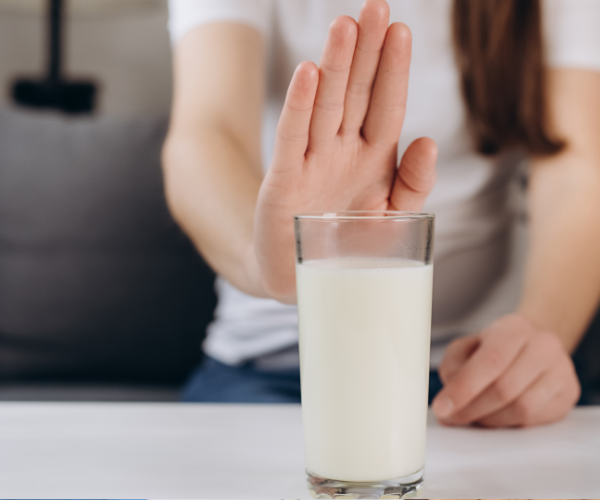
Food-related triggers
Lactose intolerance
Difficulty digesting lactose, a type of sugar found in dairy products, can result in bloating, diarrhoea, and stomach cramps.
Gluten sensitivity or coeliac disease
Consuming gluten can cause digestive discomfort and inflammation in individuals with gluten sensitivity or Coeliac disease.
Spicy and fatty foods
These foods may irritate the stomach lining, leading to discomfort, especially in individuals with pre-existing digestive issues.
Food allergies
Certain kinds of foods can trigger an immune response in some people, resulting in stomach pain, nausea, and other symptoms.
Food-related triggers
Lactose intolerance
Difficulty digesting lactose, a type of sugar found in dairy products, can result in bloating, diarrhoea, and stomach cramps.
Gluten sensitivity or coeliac disease
Consuming gluten can cause digestive discomfort and inflammation in individuals with gluten sensitivity or Coeliac disease.
Spicy and fatty foods
These foods may irritate the stomach lining, leading to discomfort, especially in individuals with pre-existing digestive issues.
Food allergies
Certain kinds of foods can trigger an immune response in some people, resulting in stomach pain, nausea, and other symptoms.
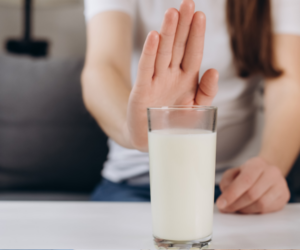
More serious medical conditions
Persistent or severe pain
If stomach pain does not improve or worsens over time, a medical evaluation may be necessary.
Unexplained weight loss
Losing weight without trying could indicate an underlying condition requiring further investigation.
Blood in stool or vomit
These symptoms may signal ulcers or another serious condition that requires immediate attention.
Difficulty eating or swallowing
Ongoing swallowing or digesting issues should be assessed by a doctor to rule out complications.

More serious medical conditions
Persistent or severe pain
If stomach pain does not improve or worsens over time, a medical evaluation may be necessary.
Unexplained weight loss
Losing weight without trying could indicate an underlying condition requiring further investigation.
Blood in stool or vomit
These symptoms may signal ulcers or another serious condition that requires immediate attention.
Difficulty eating or swallowing
Ongoing swallowing or digesting issues should be assessed by a doctor to rule out complications.

Don’t ignore persistent stomach pain—get checked today
Occasional stomach pain is normal, but ongoing discomfort could be a sign of something more serious. Conditions like ulcers, infections, and digestive disorders can worsen over time if left untreated, leading to severe complications. Even food intolerances and lifestyle factors can take a toll on your health if not properly managed.
If you’re experiencing persistent stomach pain, a burning sensation in your stomach, bloating, or unexplained symptoms, don’t wait for it to get worse. Seeking medical advice now can help you get the answers and treatment you need before a minor issue turns into a major problem. Understanding what could cause stomach pain is important, but taking action is what truly protects your health.

Don’t ignore persistent stomach pain—get checked today
Occasional stomach pain is normal, but ongoing discomfort could be a sign of something more serious. Conditions like ulcers, infections, and digestive disorders can worsen over time if left untreated, leading to severe complications. Even food intolerances and lifestyle factors can take a toll on your health if not properly managed.
If you’re experiencing persistent stomach pain, a burning sensation in your stomach, bloating, or unexplained symptoms, don’t wait for it to get worse. Seeking medical advice now can help you get the answers and treatment you need before a minor issue turns into a major problem. Understanding what could cause stomach pain is important, but taking action is what truly protects your health.

FAQs
Can dehydration cause stomach pain?
Yes, dehydration can lead to constipation and cramping, contributing to stomach pain. Drinking enough water can help maintain proper digestive function.
Are certain medications linked to stomach pain?
Some medications, including anti-inflammatory drugs and antibiotics, may irritate the stomach lining, leading to discomfort or ulcers.
Can poor sleep contribute to stomach pain?
Lack of sleep can impact digestion and increase stress, which may contribute to stomach discomfort and bloating.
